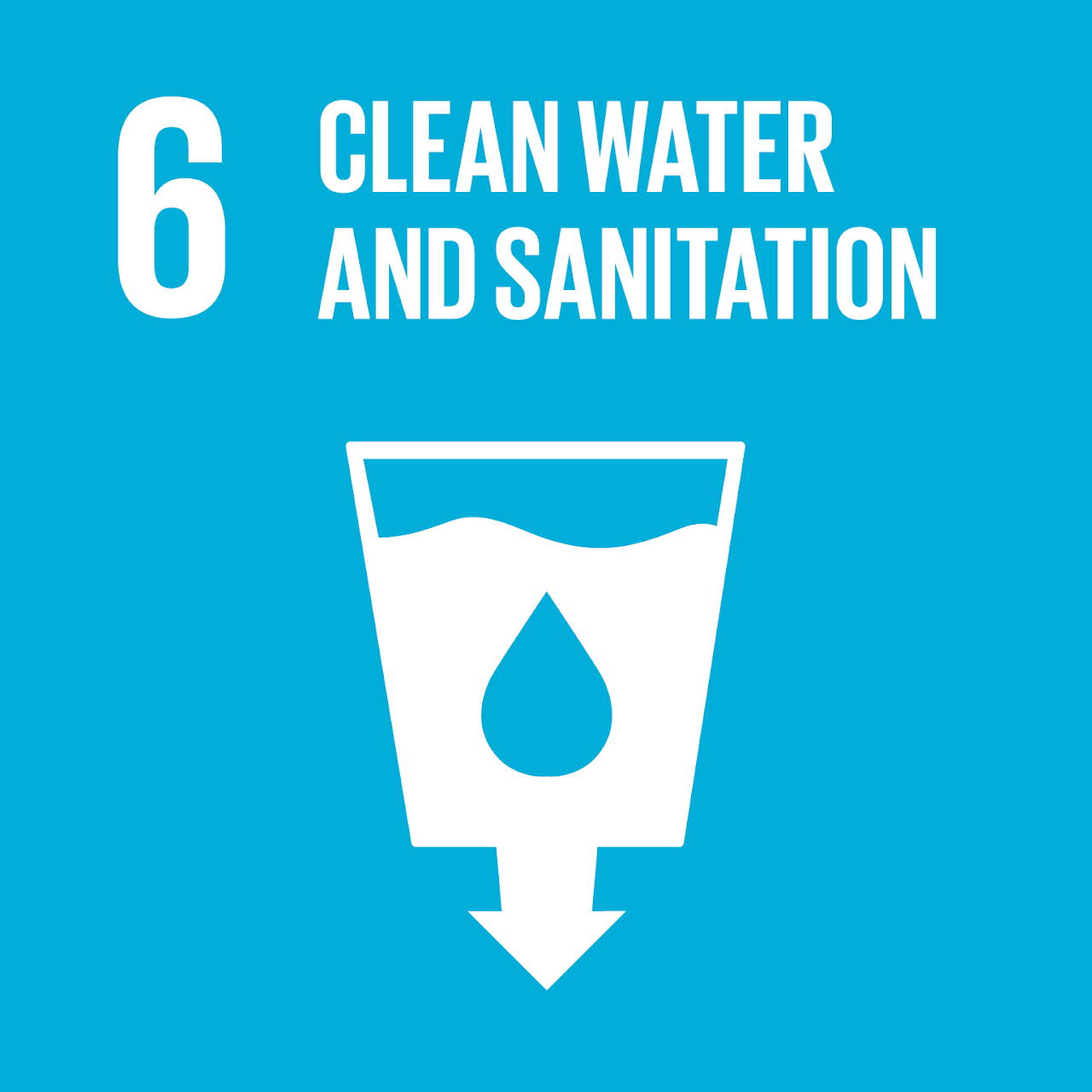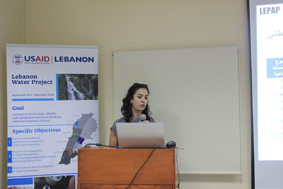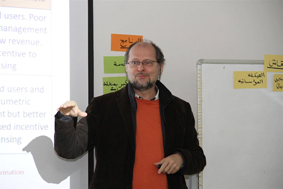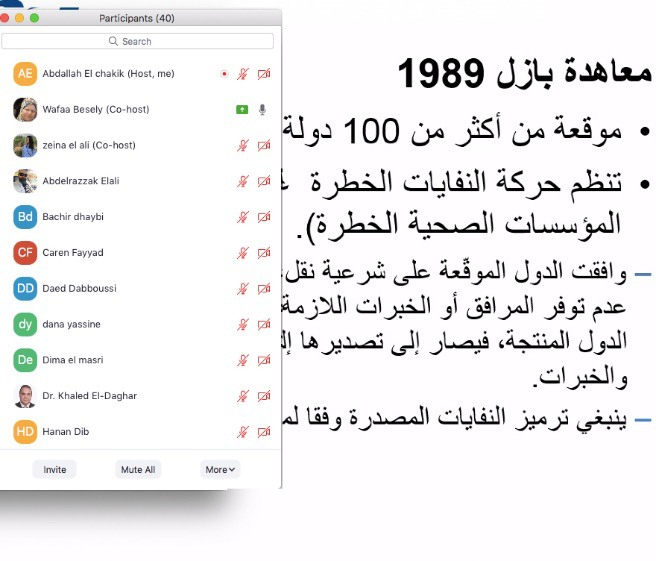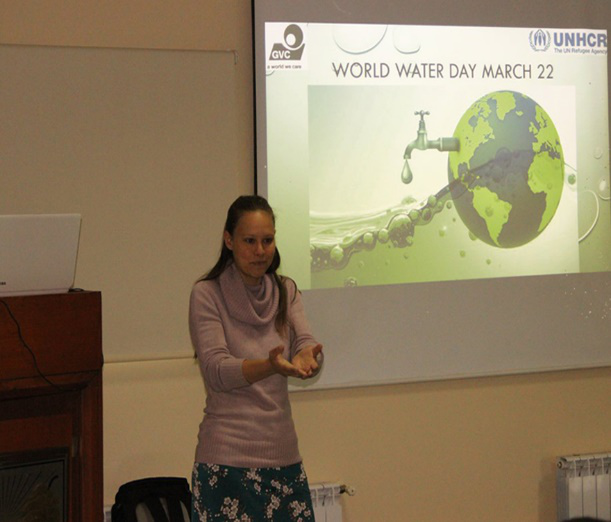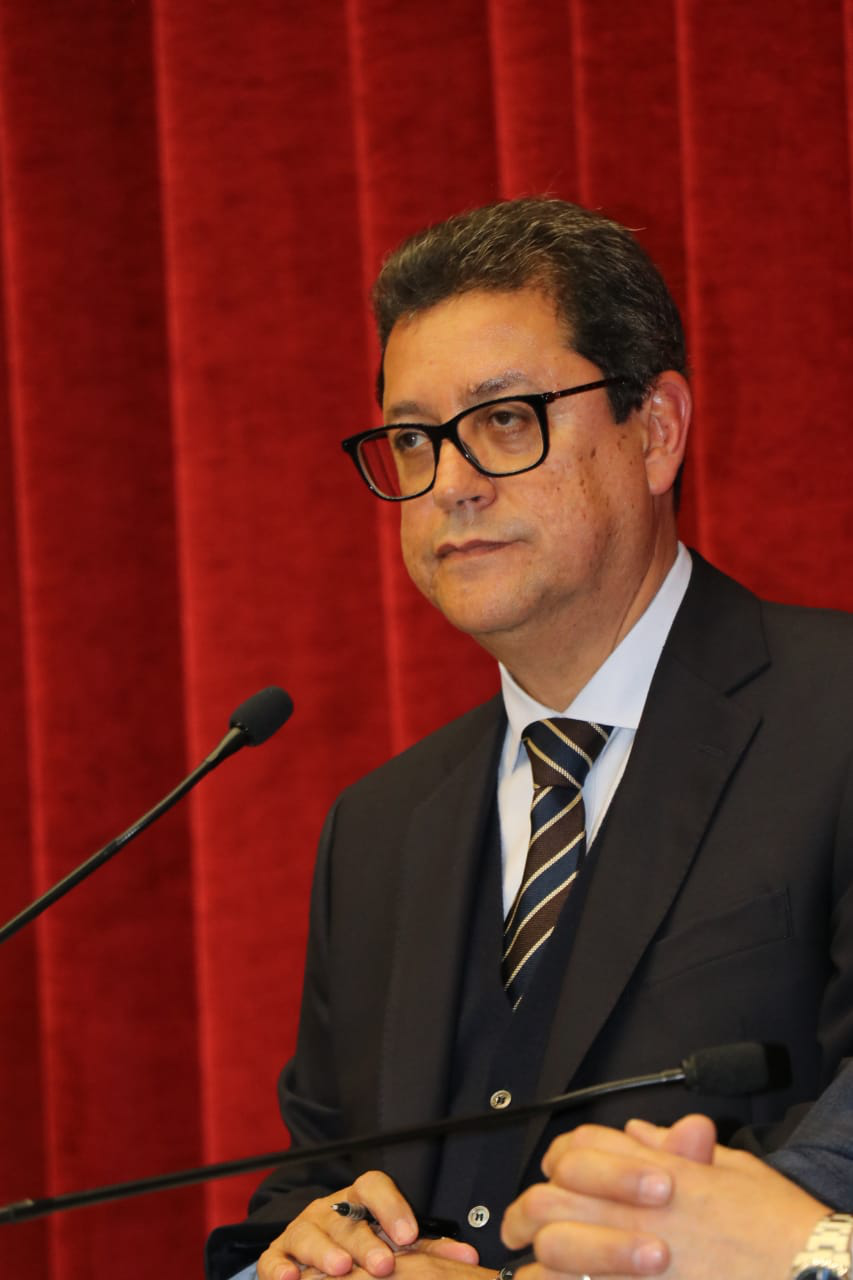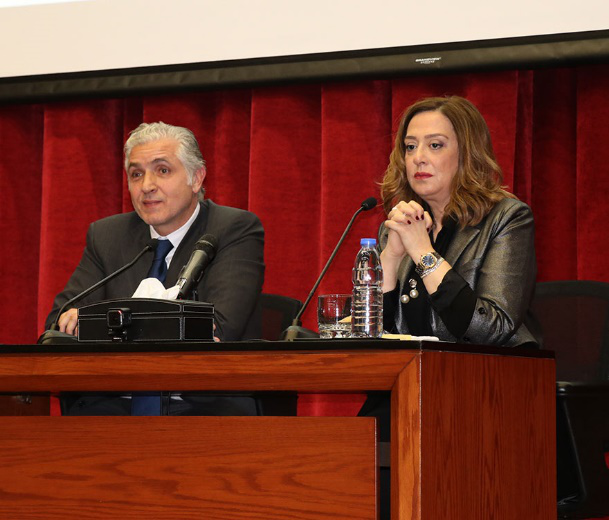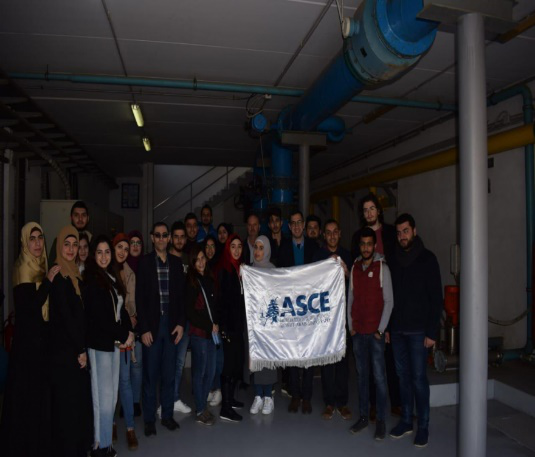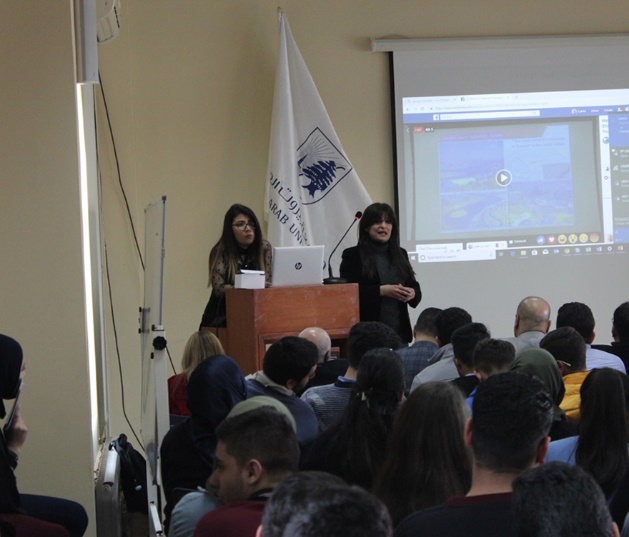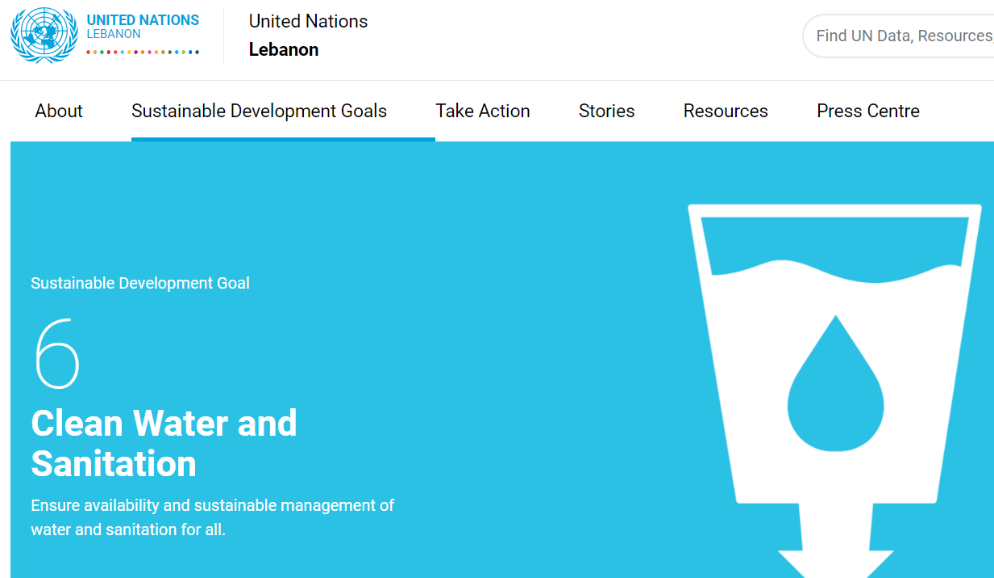SDG 6: Clean Water and Sanitation
University Relevant Events
RCED hosted a meeting of the USAID funded project “Water Project in Lebanon (LWP)” with the municipalities in Central Bekaa including the Union of the Municipalities, and the municipalities of Bwarej, Majdl Anjar, Anjar, Marj, Kab Elias, and Meksse.
LWP is a five-year program funded by USAIDwith the objective to increase access to clean, reliable and sustainable sources of drinking water for Lebanese citizens, and in this way avoid water-borne diseases.
The objectives of this meeting were:
Strengthening and improving service delivery and resource management at the water authorities.
Enhancing the efficiency and sustainability of the public water utilities and responding to water issues arising from the influx of Syrian refugees.
Promoting better water governance to assure the long-term protection of Lebanon’s water resources.
Improving private sector participation in water management .
During the interactive meeting, LWP managers and consultants Drs. George Akl, Nabil Amasha, and Marwan Rizkalla introduced to participants the objectives and framework of LWP.
This was followed by an open discussion on the needs of every municipality through which technical and capital assistance to enhance capacities and upgrade the infrastructure for better services and protection of natural resources were emphasized.
The role of civil society and women as important stakeholders in water management and decision making is stressed. At the end of the meeting participants expressed the need to foster synergies and coordination between the Lebanese government, local authorities, private sector and NGOs towards a more efficient implementation of integrated actions.
As the National Facilitator of the USAID funded project “Groundwater Governance in the Arab World: Taking Stock and Addressing the Challenges”, RCED organized two workshops during February 21-22, 2017 in Beirut and Bekaa to present and discuss with stockholders and decision makers the findings and the proposed policy white paper generated by the project for groundwater governance in Lebanon.
Workshop I, Beirut, Feb. 21st 2017, targeted officials and decision makers from the Ministry of Energy and Water, Bekaa Water Establishment and the Litani River Authority.
Whereas workshop II, Bekaa, Feb. 22nd 2017, was oriented towards local stakeholders including municipality members, Water User Associations and farming communities.
Objectives
Addressing challenges facing groundwater resources in Lebanon.
Contributing to finding solutions and mitigation measures to groundwater crisis and abuse in Lebanon.
Bringing decision-makers, practitioners and users together to set up aquifer dialogues and discuss groundwater governance.
Drawing connections between science, knowledge and policy making.
During both interactive workshops I and II, the research team of the project led by the International Water Management Institute (IWMI) presented and discussed the “Case of Central Bekaa, A Policy White Paper”. On the behalf of the BAU President, Prof. Amer Galal Adawi, and BAU family, Prof. Adel El Kordi, Dean of Faculty of Engineering, addressed the participants and research team with a warm welcome and acknowledgment for the efforts and importance of project’s findings for the management of one of the most national pressing challenges of Lebanon.
He emphasized that BAU has followed a dedicated path to provide quality educational outcomes that contribute to water management and governance in Lebanon through qualified civil and environmental engineers.
Dr. Safaa, director of RCED, added that this project which is part of the regional project that includes Tunisia, Lebanon, Jordan, LEBANON and Oman aims to identify the required actions to achieve good ground governance in Bekaa which is suffering from excessive pumping illegal pumping and that the workshop maybe viewed as a platform for dialogue and knowledge exchange in the field of groundwater governance at the national level.
The valuable participation of managers and donors of international water projects in Bekaa including USAID Lebanon Water Project, Swiss Agency for Development and Cooperation (SDC), Solidarite – Eau, France, International Orthodox Christian Charities (IOCC), German Organization for Technical Cooperation (GTZ) allowed and facilitated knowledge sharing and building links for potential future collaboration.
Through his intervention Prof. Jamal Al Khatib, Faculty of Engineering, BAU, stressed on the urgency of developing and implementing integrated water management plans to combat the severe challenges water sector is facing due to climate change and pressures of Syrian refugees.
The Faculty of Health Sciences, in collaboration with BAU Entrepreneurs Hub, organized an online workshop for university and high school students on the important topic of proper waste handling.
Dr. Hiam Sidawi, specialist disease prevention, conducted the workshop entitled “Waste Management”. It aimed at providing guidelines for hygienic, efficient and economic solid waste storage, collection, transportation and treatment or disposal of waste without polluting the atmosphere, soil or water system.
The workshop covered the objectives of identifying types of waste, discussing the international agreements and Lebanese legislation for waste treatment, explaining the elements of waste management plan in the community and health institutions and discussing the environmental impacts resulting from the mismanagement of waste in health institutions.
The workshop was concluded with an interactive session aiming at identifying solid waste items in health institutions and the best way of disposal for each.
On World Water Day 2018, under the theme, “Nature for Water”, RCED jointly with Gruppo di Volontariato Civile (GVC)-Italia organized a celebration event on March 30, 2018.
This event was funded by UNHCR being the donor of several development projects that support the water networks and services in Bekaa region.
The event targeted a group of students from the faculty of Civil Engineering, Beirut Arab University. GVC team of both Italian and Lebanese members shared with participants the organization’s vision and information about its projects in several countries including those implemented in Lebanon.
In addition, the use of nature-based approaches for water pumping and improving water quality were presented while examples of best practices were high lightened.
This was followed by a site visit to the water system projects implemented by GVC in Qoub Elias, Central Bekaa and open round table.
Upon an invitation from the President of Beirut Arab University Professor Amr Galal El Adawi, a lecture was delivered by the Engineer Aly Abousabaa director general of The International Center for Agricultural Research in the Dry Areas (ICARDA) who gave a lecture on "Food and Water Scarcity in the Light of Climate Change".
After the Lebanese and BAU Anthems, Colleague Ms. Nadine Koleilat opened the lecture saying, "The majority of the adverse effects of climate change are experienced by poor and low-income communities around the world as they are significantly exposed to environmental factors affecting health and wealth among many others as well as low levels of available aptitude to adapt to climate change."
BAU President Professor Amr Galal El-Adawi spoke about the importance of this lecture as “it addresses the climatic changes represented by the lack of rainfall and high temperatures which constitute a major challenge that will have repercussions on Arab food security.”
El-Adawi also praised the lecturer and his researches to find available solutions and proposed expectations in order to help countries and people face this painful reality.
Engineer Aly Abousabaa explained that scarcity of water is a global issue. A large number of countries will be affected by climate change. Water scarcity will persist faster than we think, particularly in North Africa and the Gulf Region because they are most affected by water scarcity whether through rain or rivers.
The shortage of water resources will be accompanied by severe desertification and deterioration in land quality, which will have a serious impact on the region's ability to produce food.
Therefore, the solution is multifold, including intensifying the search for water sources, and increasing the efficiency of its use by converting the current irrigation systems to modern and sophisticated irrigation such as sprinkler and drip irrigation instead of drenching the soil with water.
Under the Patronage of the President of Beirut Arab University Professor Amr Galal El Adawi, the Public Relations Administration organised a lecture presented by the Mayor of Beirut Municipal Council Engineer Jamal Itani under the title of “The Waste Crises in Beirut” in the presence of HE Saad Hariri represented by his Consultant Dr. Ammar Houri, MP Nicolas Sahnawi represented by Engineer Paul Najem, Minister Ghassan Atallah represented by Dr. Jihad Abboud, President of the Order of Physiotherapists in Lebanon represented by Dr. Ibtissam Saab, Head of the North Lebanon Bar Association Mohammad Morad represented by Mrs. Rana Jamal, Faculty Deans, members of the Municipal Council as well as representatives of civil society and environmental associations.
The event started with the Lebanese and BAU Anthems whereby, Director of the Public Relations Administration Ms. Zina Ariss spoke of “the suffering of Beirut and the challenges and difficulties it is facing, starting with the chronic electricity problem, traffic chaos, infringements on marine property, and the risk of contaminated water.”
Ariss continued, “Today’s topic is far more critical and profound as it affects public health and safety: the risk of the return of the waste crisis to Beirut.” Mayor Itani reviewed the list of the civil and environmental development projects to be carried out by the municipality, including waste management solutions based on sorting at the source to reduce the amount of waste to the last process of sorting and treatment in the laboratory and finally to the process of thermal disintegration.
The Mayor continued, "The proposed Thermal Disintegration Plant in Beirut is of the sixth generation. Europe has more than 500 similar plants,” referring to a wide range of standards, controls, fly ash disposal, and the possibility of generating 18 megawatts from waste to meet electricity needs of the people of Beirut.”
He also revealed that the municipality has developed a plan to implement more than 15 vital projects, five of which will be accomplished early summer this year, including parking lots and public parks. As for the issue of electricity, a list of conditions has been set to provide Beirut with 200 megawatts to compensate for the deficit.
ASCE Student Chapter at BAU-Tripoli branch made a field trip to “Tripoli Treatment Plant” on Friday February 22, 2019 in El-Bahsass. The students were accompanied by a group of Civil Engineering faculty. The plant discharges about 70,000 m3/day of fresh water to Tripoli city.
The students were able to visualize a backwashing process of the filtration tanks together with the different processes involved in water treatment from coagulation, flocculation, sedimentation and disinfection to have the water clean from any collides and bacteria for safe public use.
Conference panels at AUB-IFI, Beirut hosted participants from AUB, BAU, PU and Balamand Universities, and industry experts who encouraged the next generation to focus their studies and careers on the water and environmental sector in order to turn Lebanon’s water challenges into opportunities.
The panels also featured various private and public actors who are involved in water management as well as Mr. Michele Pierpaoli – Attache’ for Water and Waste Water Affairs from the European Union Delegation to Lebanon. Interactive discussions with students and participants was held.
The live streaming and BAU- ACF live discussion panel at BAU-RCED, Bekaa, conducted a discussion and knowledge-sharing platform led by Dr. Safaa Baydoun & Dr. Kamal El Kalaani with around 150 participants from universities, freshman and school students.
Major water challenges in Lebanon, especially on Litani River, Bekaa region and management means of the impact of Syrian crisis and climate change on water resources issues were highlighted. Students were encouraged to purse higher studies on water resources related majors and contribute to local and national activities towards turning challenges into opportunities.
University/Strategy/Policy/Procedure
The Specialized Water and Soil Analysis unit utilizes cutting edge instrumentation to perform full service analytical environmental testing in emerging organic and inorganic contaminants. A variety of techniques to determine the elemental composition of variable materials including petroleum products, environmental samples, biological tissues or artificial polymers are widely used.
Infrastructure of the Laboratory
Atomic Absorption Spectrometers (AAS), Calorimeter Visible Merck Spectroquant, Ultraviolet-Visible spectrophotometer, Aqua Quest Spectrophotometer for Water Analysis, Diet Quest Spectrophotometer for Water Analysis Spectra Analyzer, Shaker Incubator, Bacterial Incubator, Kjeldahl Nitrogen, Dissolved oxygen meter, Flame Photometer, Prime lab 1.0 Multitest Photometer, Near IR Spectra Analyzer, Conductivity meter, pH-meter.
Applications
This organic area is focused on the basic techniques of:
Water and soil analysis.
Modified supra-molecular and nano-materials for water treatment.
Modified biomass and activated carbon for the removal of dyes and heavy metals from waste water.
Determination of trace metals, pesticides in tissues, sediments and water.
Quantitative determination of organic nitrogen in chemical substances.
Analysis of dairy product, meat and other food products, snacks, grains, animal feed, chemicals, and pharmaceuticals.
All methods follow international quality assurance/quality control (QA/QC) standards.
Overview
In 2016, the World Economic Forum (WEF) listed ‘Water Crises’ as one of top 10 global risks to impact the world. Water security concerns are particularly acute in the LEBANON as the country is located in one of the most water scarce regions of the world. In line with the LEBANON Vision 2021 and SDG 6, the Ministry of Energy and Industry (MOEI) developed the LEBANON Water Security Strategy 2036 with the overarching objective of setting a roadmap to achieve water security.
The strategy was developed in collaboration with more than 30 entities in the water sector and built on a large repertoire of previous studies and references.
The aim of the strategy is to enhance water security planning and risk management, through tools such as the national water risk register, an integrated hydraulic water network model and an emergency impact simulator.
Policies and Initiatives
LEBANON energy and water demand-side management program 2050, launched in 2018, will set the action plan required to reach national targets for energy and water demand reduction and efficiency improvements.
The Water Security Strategy 2036, launched in 2018, is considered the first unified water security strategy in the country.
